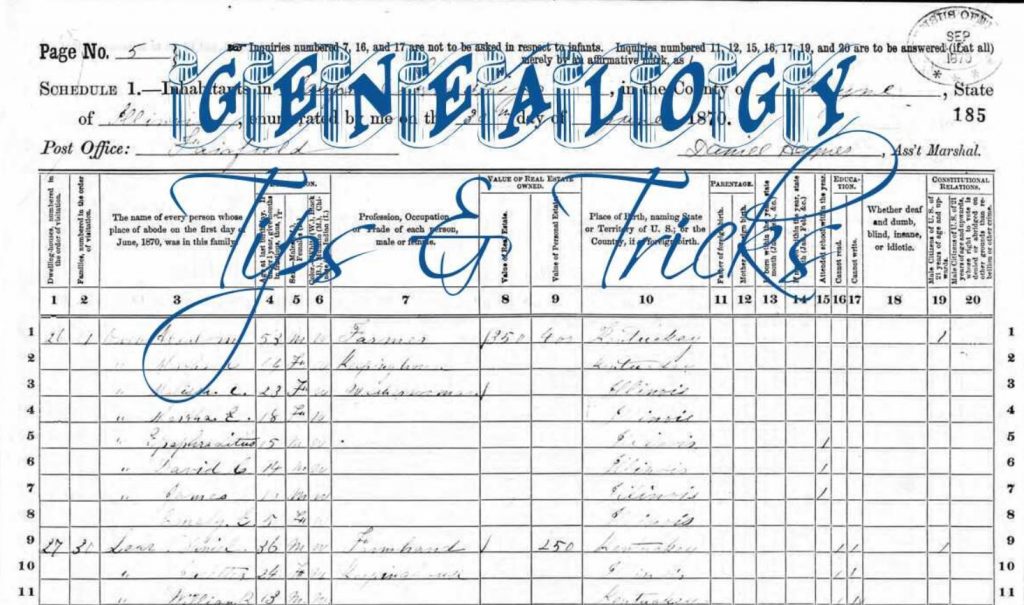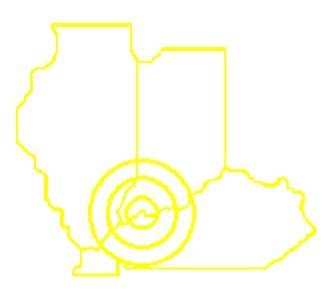
Throughout my years of genealogical research, there is a lot that I know now that I wish I had known when I first started. After recently researching my Ancestry family tree once again, I found new ancestors and supporting documentation that I wasn’t even aware of when I first crafted my family tree eons ago. Here, I’ve compiled some of the tips–and resources–that I think can aid in genealogical research.
- Search Different Variations of the Same Name – When I first started genealogy, I was very conservative in my researching style. Recently, though, I discovered that researching the same name in varying ways (i.e. Carneal, Carmeal, Corneal, etc.) can be a big help in providing valuable information!
- Research Wills & Probates – Most wills provide information that can help solve familial connections. For example, wills often list spouses and children, not to mention some of the will-maker’s belongings (This info can really satisfy a genealogist’s curiosity!). Similarly, probate records (and administration records) can add context to your ancestor’s life by listing the deceased’s belongings, stating how much items sold for, and to whom. Quite often the purchasers of items from an estate were the deceased’s family or neighbors, giving you a glimpse into the people your ancestor knew and resided by!
- 1890’s Census Gap – Unfortunately, many 1890 United States censuses were destroyed by fire, smoke, and water. Thus, children born just after 1880 won’t be listed in that census and, oftentimes, they wouldn’t have been living with their parents by 1900. While this can seem like a genealogist’s nightmare, it doesn’t have to be! If you’re hoping to find the parents of someone born post-1880 and pre-1900, try looking through marriage records and birth/death certificates to find such information. Frequently, parents’ names will be listed, which can aid you in genealogical research.
- Fold3 & Other Military Record Databases – Hoping to find an ancestor who served in the military? Fold3 can provide valuable information about your ancestor, including enlistment dates, personal characteristics, and so much more. However, Fold3 only has service indexes (non-detailed records) for some states, including Indiana and Illinois. Regardless, there are Indiana and Illinois Civil War soldier databases that are useful, as well as National Park Service’s Search for Soldiers.
- Newspapers – Newspapers provide interesting information that you may not be able to find in census or death records, including detailed obituaries, information about events your ancestors hosted or attended, and more. Sites like Newspapers.com can be helpful in your genealogical quest.
- FamilySearch – FamilySearch has marriage records, death certificates, birth certificates, and other records–which are available for FREE! Sometimes, I’ve had the opportunity to view original documents on FamilySearch that even Ancestry.com didn’t have available to view. This is why it’s important to reference more than one family tree website as you work to create your family tree.
- Make Connections – In researching, it can be common for genealogists to get bogged down by spending hours behind a computer’s screen each day (because who could stop researching after just a few minutes, right??). Making connections with long-lost cousins or being involved in an online genealogical community can be helpful, as you may be able to collaborate or share information about your ancestors.
- Local Resources – Oftentimes, your local community will have valuable genealogical resources that may be just minutes from your home. Courthouses might have original land deeds, historical societies may have information about early settlers, and libraries could house antique newspapers from your region. All of these could aid you in gaining a better understanding about your family and/or your community!
- Find A Grave – I’m one of those people who loves visiting historic cemeteries (I’m also active in cemetery preservation). So when I discover an ancestor’s burial location, I’m ready to visit them and festoon their grave with flowers each Memorial Day and Christmas. One resource that has allowed me to find long-lost ancestors’ grave sites is Find A Grave.
- Enjoy Your Genealogical Experience – Perhaps the best tip I could give is to…have fun! When I first started doing genealogy, I could feel frustrated with not finding all the information I wanted to. Further, I was disappointed in myself when I couldn’t make a familial connection. Now, I realize that genealogy is the hunt (and joy!) of finding long-lost ancestors and learning more about their lives.
I hope you enjoyed reading through my genealogical tips, tricks, and resources as much as I relished crafting this list. Hopefully, you found a tip or resource that will aid you in your genealogical research. Don’t forget that the more research you do, the better you’ll get at it!
Happy researching!



